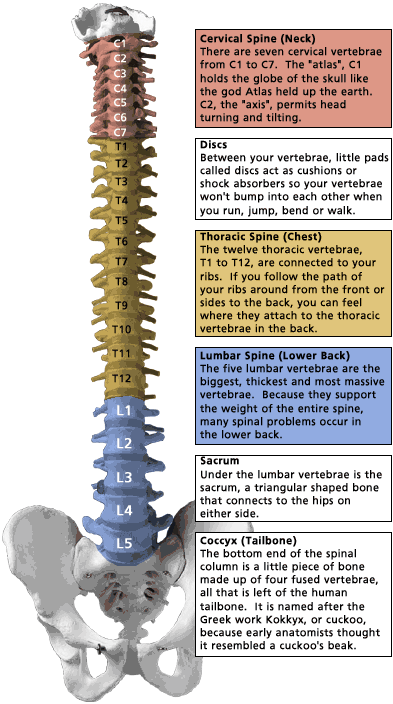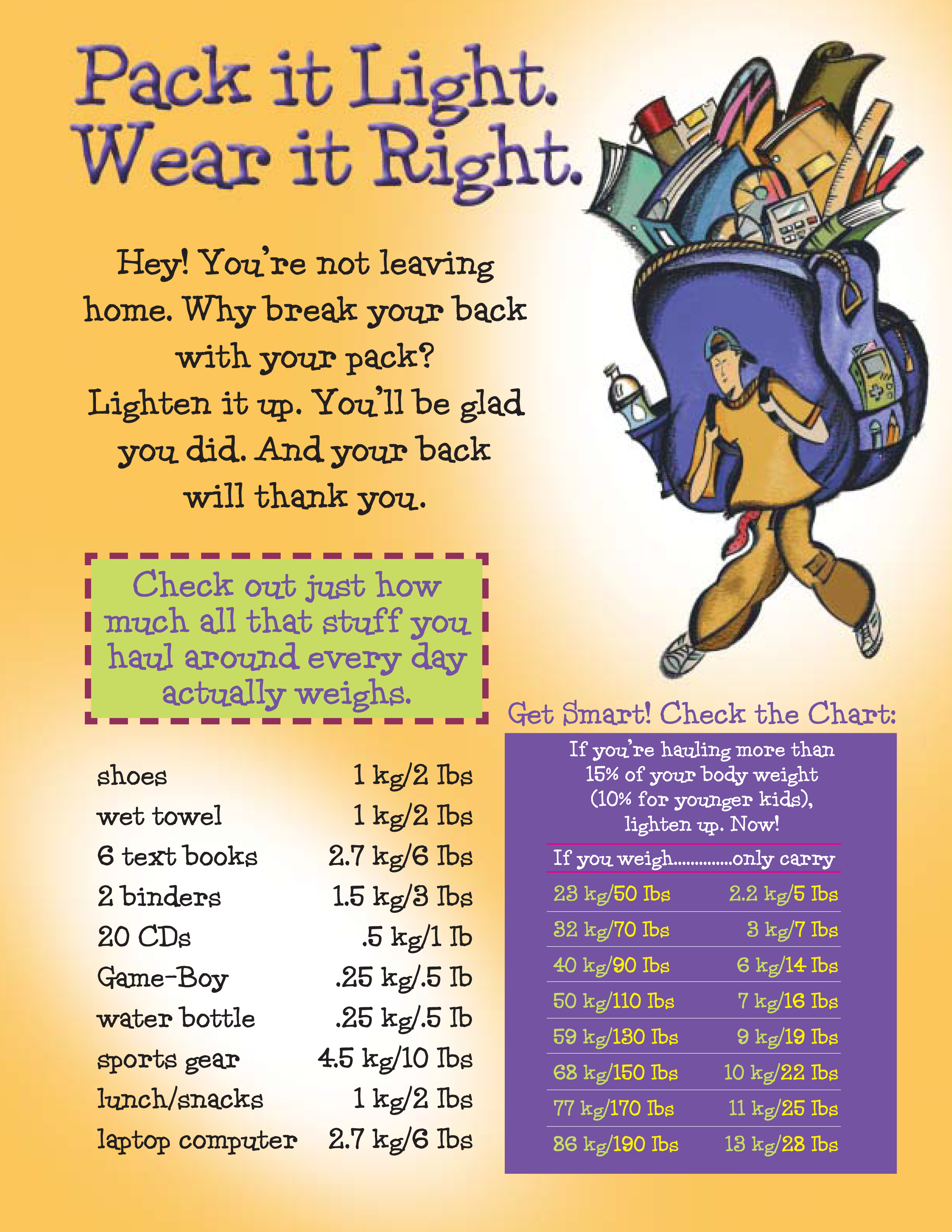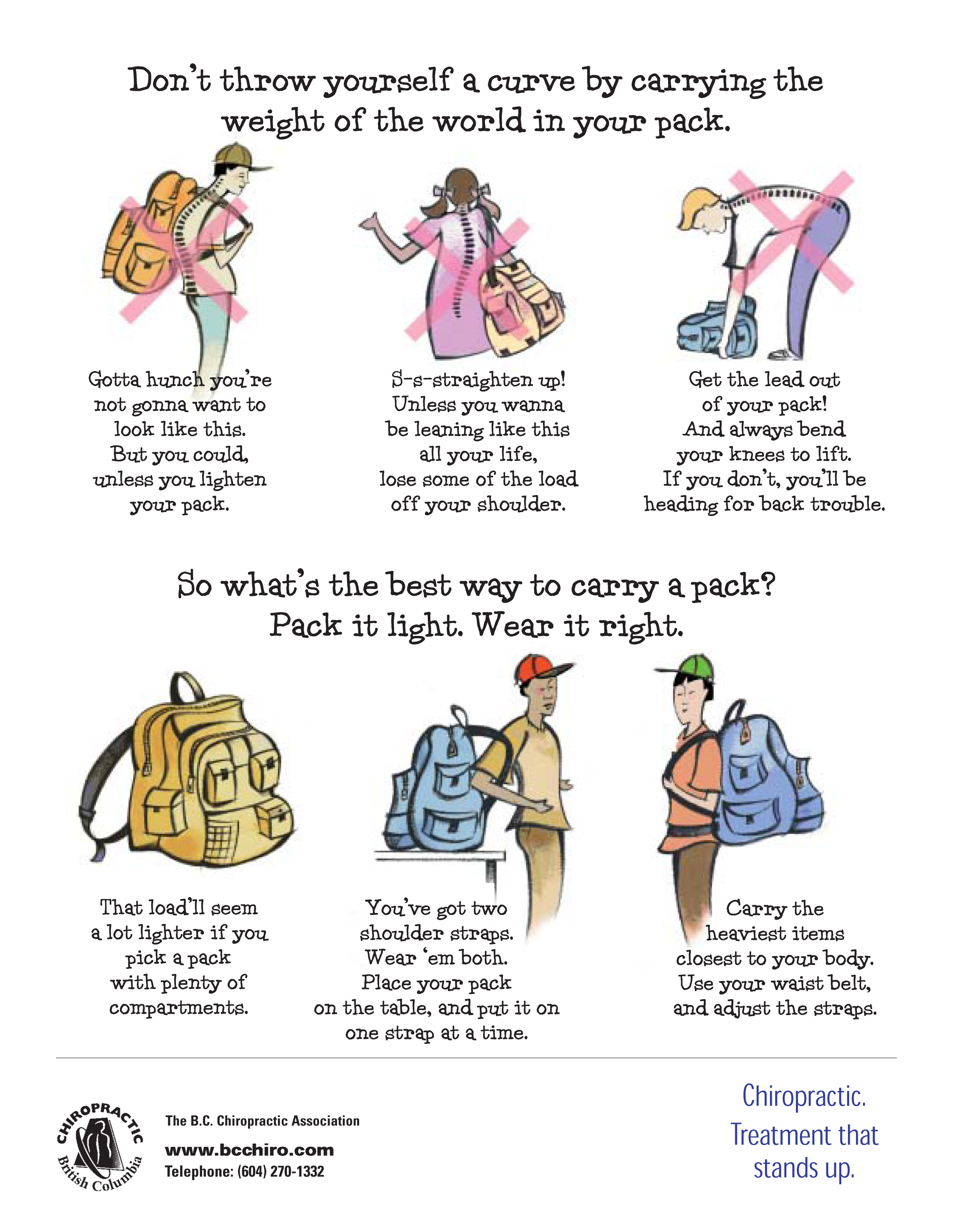INJURY PREVENTION TIPS
Your Spine, Your Health
- Many of us take our spine for granted when it is healthy. Once we feel pain however, we begin to understand how our spine affects our lives much more than we initially thought.
- Your spine, also referred to as the backbone, is made up of 24 vertebrae that form a column. This column spans your entire torso, from the base of your skull, all the way down to your pelvis.
- Discs made of a gel like substance contained in fibrous tissue are found in between each vertebra. These discs absorb shock and allow for motion along the spine.
- Through the centre of the column is the spinal cord, encased by the vertebrae for support and protection. The spinal cord is connected directly to the brain by way of the brain stem.
- Nerves branch off from the spinal cord to connect all areas of the body to the brain.
- The spinal column includes four key functions:
- To protect your spinal cord and related essential nerves
- To give structure and connection for our hips, legs, shoulders and arms
- To serve as an attachment to muscles that enable movement
- To provide framework and support for skull and ribs
- Because the spine is so inter-connected with other body systems, it is important to consider proper spine care and injury prevention.
Proper spine care & injury prevention:
There are ways to decrease your risk of injury and ensure a healthy spine throughout all stages of life. To ensure the health of your spine it is important to:
- Be Active (and smart about your activity)
- Eat Well
- Reduce Stress
Be Active
- Exercise is important to overall health. The Public Health Agency of Canada recommends at least 2.5 hours of vigorous activity per week (30 minutes of activity 5 times a week).
- Take 5-10 minutes before and after each activity to warm up and cool down. Stretching reduces the risk of injury.
- When lifting items, lift correctly. Avoid picking up heavy items directly from the ground if possible. When picking up an item, bend with your knees, tuck in your pelvis and hug the load.
- Pay close attention to body posture, especially when seated for long periods of time. Take frequent, short breaks or stand up periodically.
Eat Well
- Make healthy food choices and eat balanced meals throughout the day. Nutrient rich foods provide essential vitamins and minerals to bones, muscles and tissues.
- Healthy eating habits promote a healthy body weight. Extra weight can cause undue stress to the spine.
- Drink plenty of water. The spinal cord is made up of approximately 60% water. If you are dehydrated, your spine will be affected.
- Limit caffeine and alcohol intake.
- If you smoke, quit. Smoking impairs blood flow and decreases oxygen absorption which negatively impacts all body systems.
Reduce Stress
- When at all possible, prevent and reduce stress in your life. Stress can cause muscles to tense up, headaches, and other body aches. Acute stress may also lower your immune system and make you susceptible to viruses and other illness.
- Get plenty of rest and stick to a regular sleep schedule. 8 hours of sleep each night is recommended for adults.
- Develop effective ways for your body and mind to deal with stress: Going for a walk, taking up a yoga class or reading a book are just some options that may help you cope.
Tips to prevent common injuries & other related conditions:
- Golfing Tips
- Gardening Tips
- Skiing & snowboarding
- Neck pain
- Sprains/strains
- Proper lifting
- Holiday trips
- Children & School Backpack Program
- Sciatica, Oh My Aching Back!
- After the Crash
- Fit-in 15
- Shovel Light
- Hockey Stretches
- Running Stretches
- Biking – Heads up on helmet
- At Work Ergonomics
- Preventing Falls
- FIFA 11+ Injury Prevention Warm-up Program


